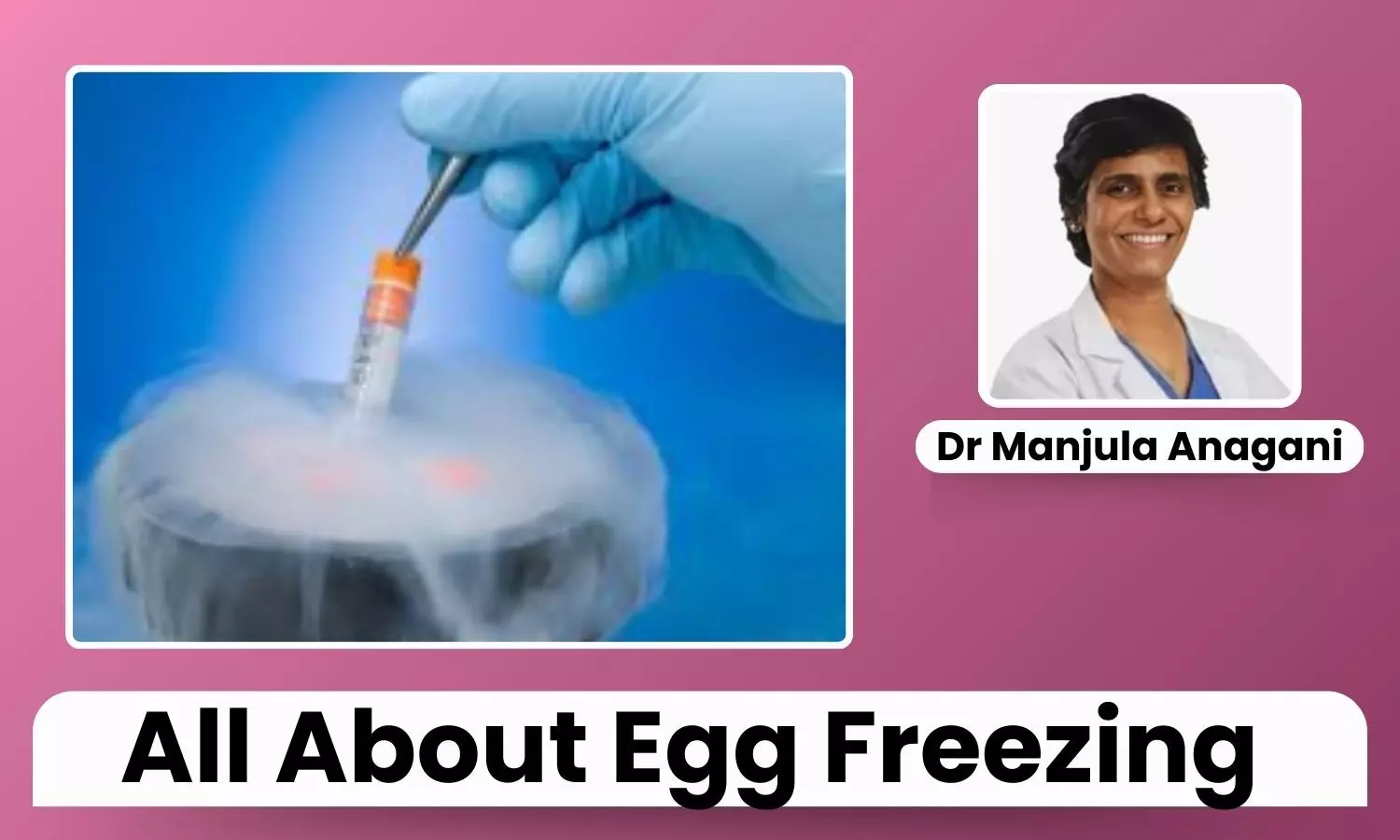How Egg Freezing Can Help You Plan for Parenthood Later - Dr Manjula Anagani

In modern times, women pursue diverse aspirations and social norms shift. They are embracing opportunities to focus on their careers, personal growth, and relationships without the pressure of a ticking biological clock.
One revolutionary medical advancement enabling this freedom is egg freezing, a process that empowers women to plan parenthood on their own terms.
Why Are Women Choosing Egg Freezing?
The decision to freeze eggs is often driven by various personal and professional considerations. Some prioritize careers ambitions or higher education. For others, waiting for the right partner or achieving financial stability before embracing parenthood.
Medical factors also influence choices and play a pivotal role. Women diagnosed with conditions such as endometriosis, autoimmune diseases, or cancer may opt for egg freezing to preserve fertility before undergoing treatments that could compromise ovarian function.
Additionally, it offers hope to those with a family history of early menopause or diminished ovarian reserve.
Essentially, egg freezing has become a powerful tool for women who wish to take control of their reproductive futures while navigating the complexities of modern life.
Process of Egg Freezing
Egg freezing, or oocyte cryopreservation, involves several key steps:
- Initial Consultation and Assessment: The journey begins with a comprehensive consultation with a fertility specialist. This includes a review of medical history, hormonal evaluations, and an ultrasound to assess ovarian reserve.
- Ovarian Stimulation: To produce multiple eggs for retrieval, the patient undergoes hormone injections over 8-14 days. Regular monitoring through blood tests and ultrasounds ensures optimal follicular growth.
- Egg Retrieval: Once the eggs are mature, they are retrieved through a minor surgical procedure performed under sedation. A needle guided by ultrasound is used to collect the eggs from the ovaries.
- Cryopreservation: The retrieved eggs are flash-frozen using a technique called vitrification, which prevents ice crystal formation and ensures high survival rates during thawing.
These frozen eggs can be stored for several years until the woman decides to use them for conception.
Benefits of Egg Freezing
Egg freezing offers multiple benefits, both psychological and practical:
- Reproductive Autonomy: It provides women with the flexibility to choose when they want to start a family without compromising egg quality.
- Increased Success Rates: Younger eggs have higher chances of leading to successful pregnancies, reducing age-related fertility challenges.
- Peace of Mind: Knowing that a safety net exists can alleviate the anxiety of age-related fertility decline.
- Medical Safeguard: For women undergoing treatments that affect fertility, egg freezing ensures they retain the option of biological parenthood.
Risks and Considerations
While egg freezing is a promising option, it is not without limitations and risks:
- No Guaranteed Pregnancy: Not all frozen eggs survive the thawing process, and not all fertilized eggs result in viable pregnancies.
- Medical Risks: Ovarian stimulation can cause mild side effects such as bloating, or in rare cases, ovarian hyperstimulation syndrome (OHSS).
- Cost: The procedure, along with long-term storage fees, can be expensive and may not be covered by insurance.
- Emotional Impact: Despite its promise, the process can be emotionally taxing, requiring adequate support systems.
Future of Egg Freezing
The growing acceptance of egg freezing signals a significant shift in how society views family planning. It’s no longer solely about biological timelines but also about individual readiness and well-being.
Advances in technology are improving egg survival and pregnancy rates, making it an increasingly viable option for women worldwide.
Conclusion
Egg freezing is more than a medical procedure; it’s a testament to the progress of reproductive medicine in empowering women to live life on their own terms.
By understanding the process, benefits, and potential challenges, women can make informed decisions about their reproductive health and futures.
As a woman and a medical professional, I see egg freezing as a beacon of hope for those who dream of parenthood without compromise. It’s a choice that underscores the strength and resilience of women as they navigate the beautiful complexities of life and family.


